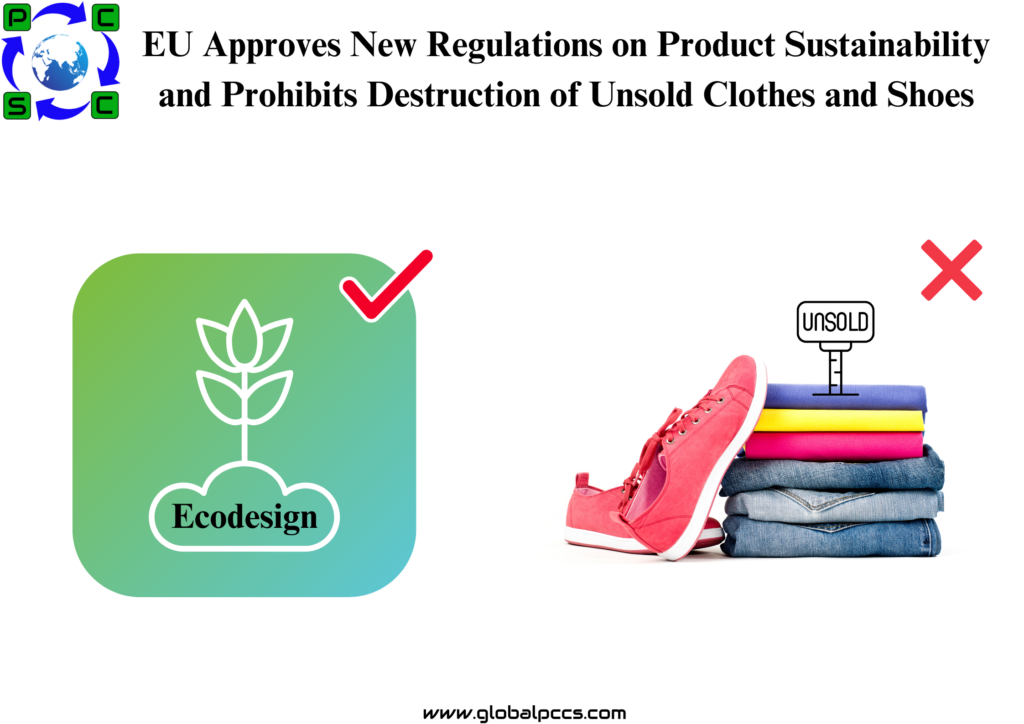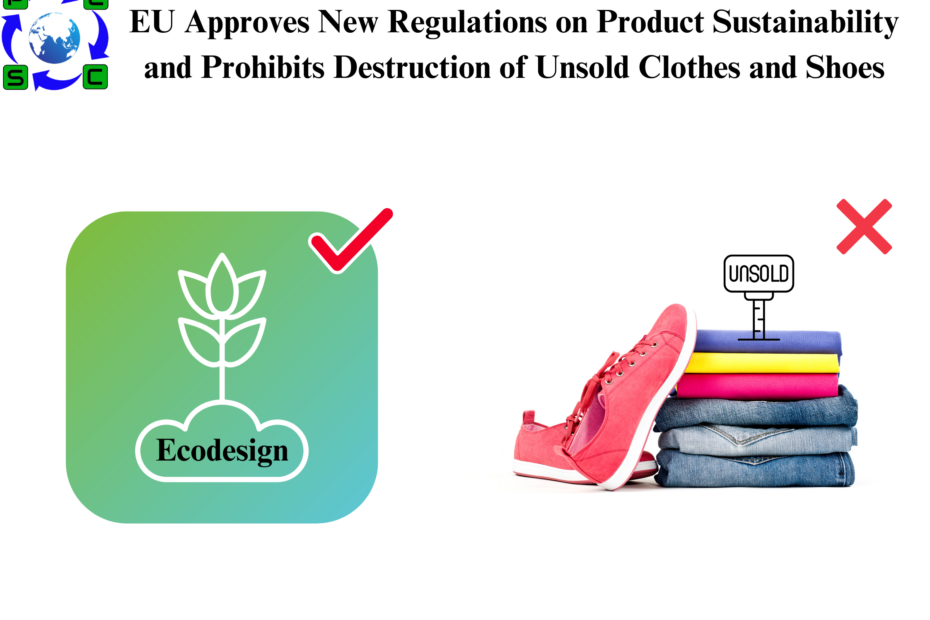 The European Council stated that member states have approved standards for a new “Ecodesign” framework, which would define sustainability requirements for almost all items marketed in the EU. Additionally, the destruction of unsold textiles and footwear will no longer be permitted.
The European Council stated that member states have approved standards for a new “Ecodesign” framework, which would define sustainability requirements for almost all items marketed in the EU. Additionally, the destruction of unsold textiles and footwear will no longer be permitted.
The declaration by the EU Council represents the last significant step before the new regulation is finally adopted. The new “Ecodesign” criteria were approved by the European Parliament in April.
The new regulations were adopted in response to a March 2022 proposal by the European Commission to replace the 2009 Ecodesign directive, which was restricted to energy-related products, and establish guidelines to enhance the sustainability profile of a broad range of products, including making them more environmentally friendly, circular, and energy-efficient throughout their lifecycle.
The amended regulation gives the Commission the authority to impose ecodesign standards on products in almost every product category to increase their environmental sustainability. The only products that are not subject to these regulations are motor vehicles, which are governed by laws of their own, and items that are related to national security or defense. Aspects of sustainability covered by the amended regulation include energy and resource efficiency, recycled content, remanufacturing and recycling, products’ carbon and environmental footprints, product durability, reusability, upgradability, and reparability, as well as the use of materials that hinder circularity.
The regulation also mandates the creation of a new “Digital Product Passport,” which will provide information about products’ environmental sustainability to help businesses and consumers make informed decisions. It also requires the Commission to oversee the operation of a public web portal where customers will be able to search and compare the data contained in product passports.
The new regulations, which forbid the destruction of unsold textiles and footwear, will go into effect two years after they are approved, with small and micro businesses excluded and medium-sized businesses having a six-year exemption. In addition to requiring reporting on the amount of unsold items destroyed and the reasons behind it, the law permits the inclusion of new product categories to the prohibition on the destruction of unsold products.








 Authorised IMDS & CDX Training & Consulting partner for
Authorised IMDS & CDX Training & Consulting partner for






